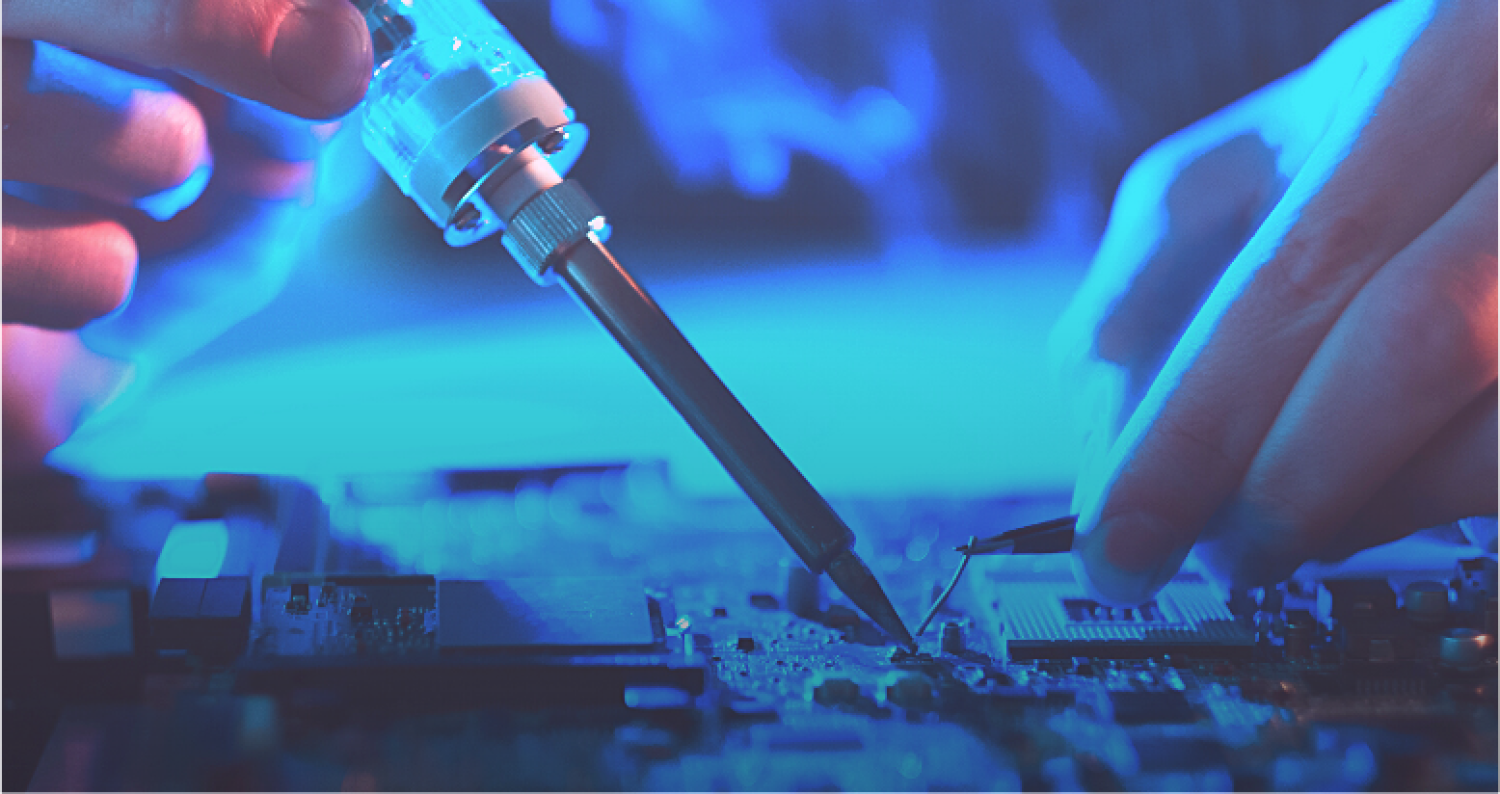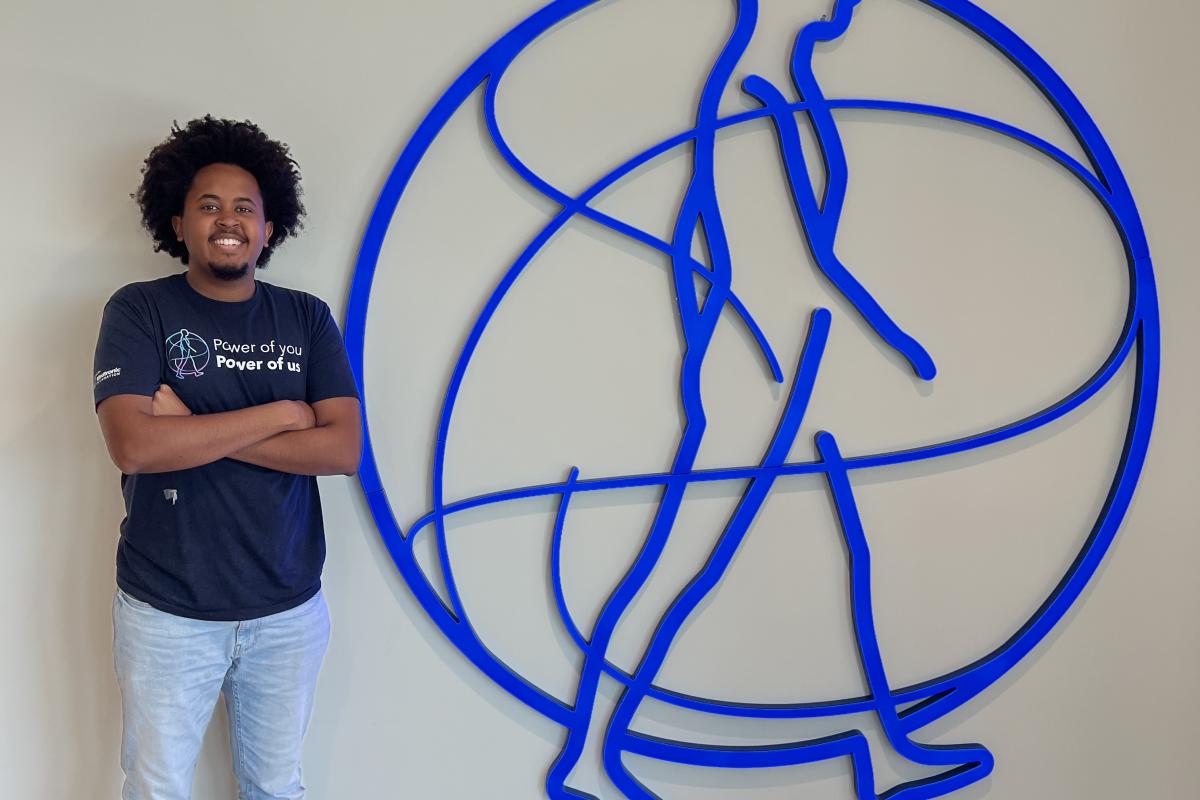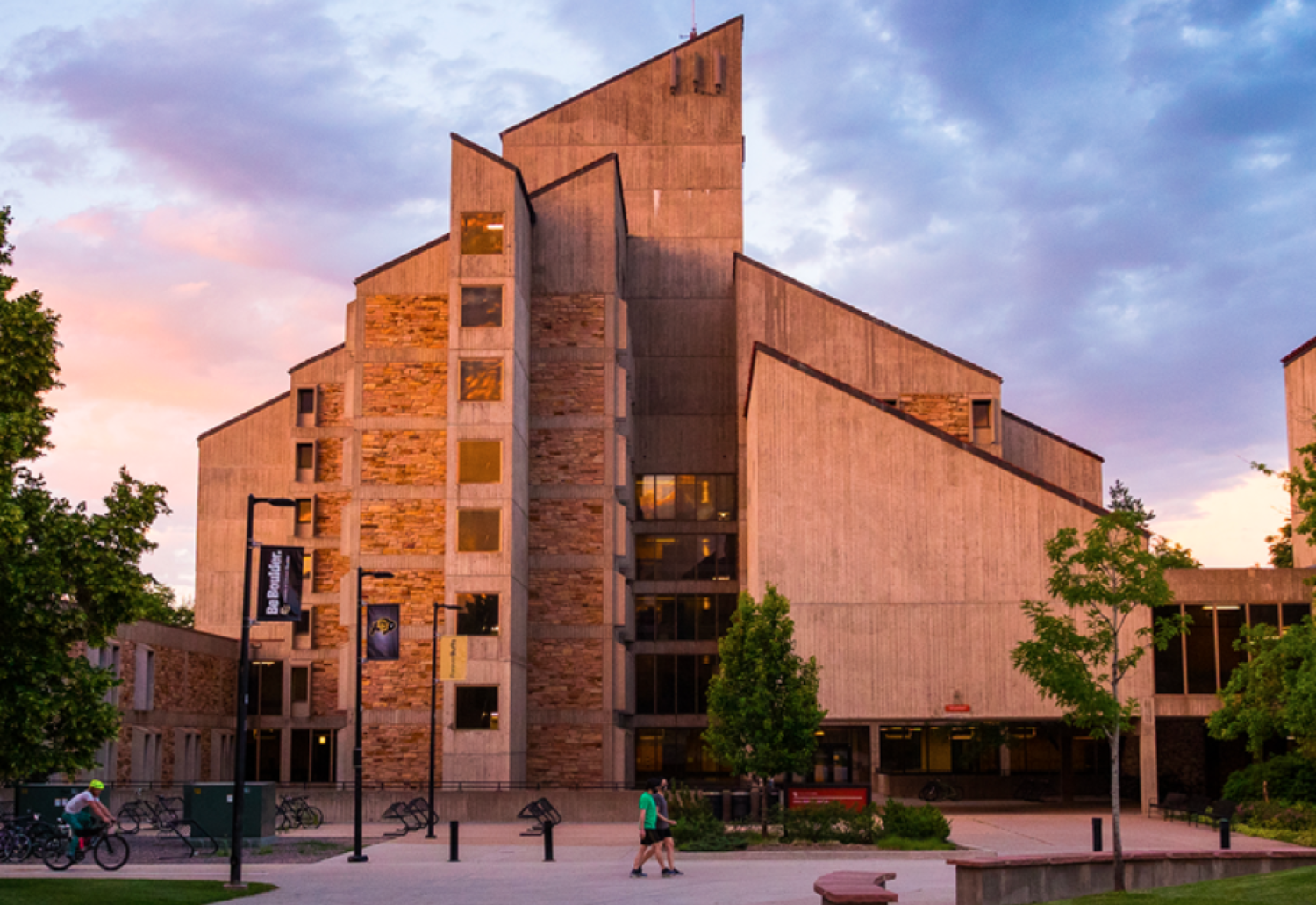Electrical, Computer & Energy Engineering Department News - February 17, 2025

We welcome your submissions for our weekly newsletter for faculty, staff, and graduate students. Please send a brief paragraph with what you'd like included to Carolanne Ayers before noon on Thursday to be included in the following week's newsletter!
Department News


No Department Meeting this Week (Feb. 20)
There will be no department meeting this week. Instead, please attend Mushuang Liu's seminar during this time!
Hello faculty, staff and graduate students! As the end of the academic year approaches, we would like to receive your nominations for your colleagues to win our departmental awards that will be presented at our annual awards event on April 25, 2025. There are awards for faculty, staff, post-doctoral associates and graduate students.
Please submit your nominations by March 30, 2025. This nomination form can also be found on our awards page.
Faculty Announcements
Faculty: As you plan for summer and beyond, please note the visa request processing times listed below. As always, work with Patty Sue Femrite to process the J-1 and H-1B required forms.
ISSS Request Processing Times
- J-1 Exchange Visitor: Requests must be submitted at least 4 months before the requested program start date and can be submitted up to a year in advance.
- H-1B Scholar: H-1B requests should be initiated 7-8 months before the requested start date. ISSS can complete one of the required steps 6 months prior to the requested start date.
Join School of Sustainable Engineering listening sessions
The sessions will explore the creation of a School of Sustainable Engineering. The focus will be on opportunities, aspirations and results that could be achieved through the formation of such a school. Climate action, water resource management, infrastructure resilience and renewable energy are only a few of the topics that our faculty can address through research, education, outreach and workforce development.
Faculty: Nominate a Doctoral Student for the Graduate School Summer Fellowship
The Graduate School Summer Fellowship supports doctoral students in advancing their dissertation research and writing over the summer term. Each department may submit one nominee, and we strongly encourage participation!
🔹 Award Amount: $7,500 (biweekly stipend over the summer)
🔹 Eligibility:
- Must advance to D status by the end of Spring 2025
- No university-sponsored summer 2025 funding
- Not receiving major fellowships for AY24/25 or AY25/26
- Preference for students without prior non-RA/TA/GA/GPTI funding in AY24/25
📅 Nomination Deadline: February 21, 2025
📩 Submit nominations to: Grad Committee
We’ve compiled a list of Spring 2025 and Summer 2025 Graduating Students, and we encourage faculty and staff to review it for potential award nominations.
📅 Nomination Deadline: March 10, 2025
📩 Questions? Contact Mackenzie Hatcher for details on awards and requirements.
Upcoming Seminars
Highly-efficient and energy-dense magnetic components for power electronics by Rachel Yang
📅 Date: Monday, February 17, 2025
⏰ Time: 11:10 a.m. – 12:30 p.m.
📍 Location: Engineering Center, ECEE 1B32, CU Boulder
Abstract: Power electronics are key to advancing many power-critical technologies, such as data centers, electric vehicles, and renewable energy systems. One major performance bottleneck in power electronics is inefficient and large magnetic components, such as inductors and transformers. In this talk, I will present two new inductor designs I developed that can cut energy losses in half or boost energy density by 70% in certain applications compared to conventional inductor designs. The first inductor design is suitable for power electronics applications with large ac currents and uses a special modular structure to achieve high performance. This design has been demonstrated in a 660W ac-to-dc converter (98% efficiency, 80W/in3) and a 70W wireless power system (94% efficiency). The second inductor design is suitable for power electronics applications with mostly dc currents and combines multiple magnetic materials, including a permanent magnet, to achieve high performance. This design has potential to improve filters found in many power electronics, especially those in technologies with size or weight constraints such as smartphones or drones. At the end, I will discuss my future research directions in high-performance magnetics design and modeling for advancing power electronics.
Bio: Rachel Yang is a PhD candidate in electrical engineering at MIT. She earned her SB and MEng degrees in electrical engineering from MIT in 2018 and 2019, respectively. Her research interests include designing and modeling magnetic components for power electronics to improve the efficiency and performance of energy systems, such as data centers, electric vehicles, and renewable energy systems. Rachel has received the National Science Foundation Graduate Research Fellowship, the MIT School of Engineering Distinguished Energy Efficiency Fellowship, and the MIT E.E. Landsman Fellowship. She has also received best presentation and paper awards from IEEE conferences. In addition to research, Rachel is a Communication Fellow at the MIT EECS Communication Lab, where she coaches students on technical communication skills and teaches workshops. She is also a science writer who has published articles in MIT News and has written video scripts for TED-Ed.
Multi-agent control and learning for autonomous systems by Mushuang Liu
📅 Date: Thursday, February 20, 2025
⏰ Time: 11:10 a.m. – 12:30 p.m.
📍 Location: Engineering Center, ECEE 1B32, CU Boulder
Abstract: Modern complex systems often involve multiple interacting agents in a shared environment, e.g., transportation systems, power systems, swarm robotics, and human-robot interactions. Controlling these multi-agent systems (MASs) requires the characterization of agents’ interactions to account for their interdependent self-interests and coupled agents’ constraints such as collision avoidance and/or limited shared resources. To enable interaction awareness and human-like reasoning processes, game-theoretic control has been explored in the recent development of autonomous systems operating in multi-agent environments. However, fundamental challenges, including solution existence, algorithm convergence, scalability, and incomplete information, still remain to be addressed before the game-theoretic approaches could be sufficiently practical to be employed in a broad range of autonomous system applications. Possible solutions to addressing these challenges will be discussed in this talk, using autonomous driving as an application example.
Bio: Mushuang Liu is an Assistant Professor in the Department of Mechanical and Aerospace Engineering at the University of Missouri (MU), Columbia, MO. Before she joined MU in August 2022, she worked as a Postdoc in the Department of Aerospace Engineering at the University of Michigan, Ann Arbor, MI, 2021-2022; and received her Ph.D. degree from the University of Texas at Arlington, Arlington, TX, in 2020. Her research interests include control and learning for multi-agent systems with applications to automotive systems, aerospace systems, and robotics. Her research has led to over 30 publications and various awards including the 2024 DARPA Young Faculty Award (YFA) and MU Faculty Excellence Award. She is currently serving as an Associate Editor for ISA Transactions, Advanced Control for Applications, and multiple conferences including ACC and CDC.
📅 Date: Friday, February 28, 2025
⏰ Time: 11:10 a.m. – 12:30 p.m.
📍 Location: Koelbel Building: Leeds School of Business, 352
Abstract: High-performance systems are increasingly bottlenecked by the energy and communications costs of interconnecting numerous compute and memory resources. Current systems face a gap of nearly two orders of magnitude between on-chip, intra-socket, communication capacities, and the capacities of links transporting data over longer distances. The per bit energy cost of data movement dominates that of data processing, as does density, throughput, and latency. Integrated silicon photonics offer the opportunity of optical connectivity that delivers high off-chip communication bandwidth densities with low power consumption. To realize these benefits the co-integration of photonics with the compute and memory is critical. This talk will cover approaches for leveraging photonic IO that can scale to realize Petabit/s chip escape bandwidths with sub-picojoule/bit energy consumption, as well as new architectural approaches that enable flexible connectivity tailored to accelerate distributed AI/ML applications.
Bio: Keren Bergman is the Charles Batchelor Professor of Electrical Engineering at Columbia University where she also serves as the Faculty Director of the Columbia Nano Initiative. Bergman received the B.S. from Bucknell University in 1988, and the M.S. in 1991 and Ph.D. in 1994 from M.I.T. all in Electrical Engineering. At Columbia, Bergman leads the Lightwave Research Laboratory encompassing multiple cross-disciplinary programs at the intersection of computing and photonics. Since 2023 Bergman is the Director of the Center for Ubiquitous Connectivity (CUbiC), a 5-year multi-university center funded by DARPA and the Semiconductor Research Corporation (SRC) under the Joint University Microelectronics Program 2.0 (JUMP 2.0). Bergman serves on the Leadership Council of the American Institute of Manufacturing (AIM) Photonics leading projects that support the institute’s silicon photonics manufacturing capabilities and Datacom applications. She is the recipient of the IEEE Photonics Engineering Award and is a Fellow of Optica and IEEE.
ECEE Seminar: A biological communications system using weak magnetic and radio frequency fields by Frank Barnes
📅 Date: Monday, March 10, 2025
⏰ Time: 11:10 a.m. – 12:15 p.m.
📍 Location: Engineering Center, ECEE 1B32, CU Boulder
Bio: Dr. Frank Barnes is a Distinguished Professor Emeritus in the Biomedical group of the Electrical, Computer and Energy Engineering Department at the University of Colorado Boulder, as well as a member of the National Academy of Engineering. Barnes received his B.S. from Princeton University in electrical engineering in 1954, his M.S. Engineer and PhD from Stanford University in 1955, 1956 and 1958. He joined the University of Colorado in 1959. He was appointed a Distinguished Professor in 1997. He was elected to the National Academy of Engineering in 2001 and received the Gordon Prize 2004 for innovations in Engineering Education from the National Academy. He is a fellow of IEEE, AAAS and served as Vice President of IEEE for publication and as Chairman of the Electron Device Society and President of the Bioelectromagnetics Society, and as U.S. Chair of Commission K-International Union of Radio Sciences (URSI).
Student Announcements
Apply Now: 2025 Colorado Science & Engineering Policy Fellowship
The Colorado Science & Engineering Policy Fellowship offers a unique opportunity to gain hands-on experience in the state legislative process while conducting research and developing your own policy proposals.
Program Dates: June 16 – August 8, 2025
Location: Denver, CO (Legislative Offices)
Stipend: $4,000 for living expenses
Past Speakers & Visits: Engage with top leaders in government, industry, and research institutions like NREL, Google Boulder, and Lockheed Martin.
Application Deadline: March 3, 2025
The Graduate School is co-hosting a workshop with the University Libraries related to copyright, fair use, and publishing questions on Tuesday, March 4, 2025 10 a.m. to 11 a.m. The workshop is a great opportunity for students at any stage of thesis writing or preparation to ask questions of a copyright expert.
How can I reuse material from my dissertation for publications, or visa versa? Do I need to register copyright for my dissertation/thesis? Should I share my dissertation/thesis publicly, and how do I go about sharing it? What do I need to be concerned about when using material from other publications in my dissertation/thesis? If you’ve asked yourself any of these questions, this workshop will explore copyright law, fair use principles, and publisher policies and help you to make important decisions about your own dissertation or thesis.
IT News
Secure Computing Initiative
Phase 1 of the secure computing initiative is underway. Please respond promptly to Bret Moreland and assistants’ requests for identifying every computer in use in offices and labs and return the required information. The completion date for this project is February 15. Questions about this initiative should be directed to Robin.Elliott@colorado.edu.
IT Support
IT Support:
- Teaching Labs (Capstone, Embedded Systems, Power Lab, Optics, RF, Highspeed Measurements, Circuits) IT Support: http://itll.link/servicedesk
- Research Labs License Server Support: support@craftypenguins.net
- Research Computing: https://www.colorado.edu/rc/
- Research License Server (ecee-flexlm-2.colorado.edu): Submit a request to: support@craftypenguins.net
- Conference Rooms ECEE 1B55 & 1B45: Send an email to ECEE IT support: http://itll.link/servicedesk
- IT Service Center: Contact the IT Service Center (303-735-4357 or help@colorado.edu) for help with all OIT services including email and IdentiKey, Internet connectivity and other technology-related questions.
- Buff Techs Desktop Support: OIT provides no-cost software support for laptop and desktop workstations to faculty, staff, and students. You can also register your laptop to aid in recovery in case it is lost or stolen.
- Dedicated Desktop Support: Departmental IT Support customized for your needs.
- Network Troubleshooting: Submit this form to report network connectivity issues on campus.
- Classroom Technology Problem Reporting form: Submit this form to report an issue with technology malfunctioning in a classroom (except for the ECEE classrooms – contact Bret.Moreland@colorado or 303-503-7939 for support)
- Self-Service Help Request: Submit a request directly to the ITSC using ServiceNow
- Lightboard: Contact Andy Garcia, Andrew.Garcia-3@colorado.edu, in the Mechanical Engineering department for scheduling and technical assistance
- OIT Website https://oit.colorado.edu/support
- All other issues, contact Robin.McClanahan@colorado.edu or 303-492-6736.

